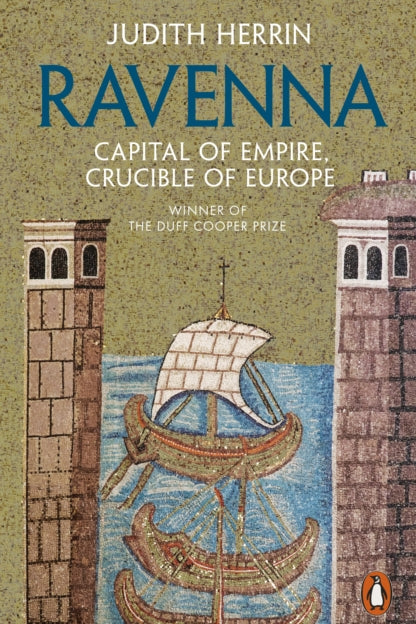Medieval Italy
Medieval Italy was a crucible of commerce, culture and church. This collection delves into daily life in The Merchant of Prato and civic grandeur in Siena. Dante offers a fresh look at Italy’s literary giant, while Ravenna reveals the city’s imperial and Christian legacy. Umberto Eco’s The Name of the Rose blends monastic mystery with philosophical depth. Ideal for lovers of medieval history, religion and early Italian identity.

The Merchant of Prato - Iris Origo
This extraordinary re-creation of the life of a medieval Italian merchant, Francesco di Marco Datini, is one of the greatest historical portraits written in the twentieth century. Drawing on an astonishing cache of letters unearthed centuries after Datini's death, it reveals to us a shrewd, enterprising, anxious man, as he makes deals, furnishes his sumptuous house, buys silks for his outspoken young wife and broods on his legacy. It is an unequalled source of knowledge about the texture of daily life in the small, earthy, violent, striving world of fourteenth-century Tuscany.

Siena - Jane Stevenson
Occupying a hilltop site in the midst of a vast, undulating landscape, Siena is as much a magnet for contemporary tourism as Florence. However, its proud republican past presents an intriguing contrast with its Medici-dominated northern Tuscan rival, with which it tussled for local supremacy for much of the High Middle Ages. Jane Stevenson charts the changing fortunes of a city that rose to an astonishingly productive cultural heyday in the thirteenth and fourteenth centuries, suffered a catastrophic late medieval decline in the aftermath of the Black Death, but transcended the loss of its wider political power to enjoy a prosperous civic afterlife.

Dante - Alessandro Barbero
Since Dante Alighieri wrote the Divine Comedy it has defined how people imagine and depict not only heaven and hell, but romantic love and the human condition. However, while Dante's works are widely celebrated outside Italy, the circumstances of his extraordinary life are less well known. Born in 1265, Dante's adolescence was characterised by literary genius, but his political activism in one of the medieval world's wealthiest cities led to his death in exile. Pre-eminent Dante scholar Alessandro Barbero and celebrated translator Allan Cameron bring the poet vividly to life. Animating the political intrigue, violence, civil war, exile and cities that shaped Dante's poetic and political life, this is a remarkable portrait of one of the creators of European literature and a towering medieval figure in time for the 700th anniversary of his death.

The Name of the Rose - Umberto Eco
The year is 1327. Franciscans in a wealthy Italian abbey are suspected of heresy, and Brother William of Baskerville arrives to investigate. When his delicate mission is suddenly overshadowed by seven bizarre deaths, Brother William turns detective. William collects evidence, deciphers secret symbols and coded manuscripts, and digs into the eerie labyrinth of the abbey where extraordinary things are happening under the cover of night. A spectacular popular and critical success, The Name of the Rose is not only a narrative of a murder investigation but an astonishing chronicle of the Middle Ages.

Ravenna - Judith Herrin
In 402 AD, after invading tribes broke through the Alpine frontiers of Italy and threatened the imperial government in Milan, the young Emperor Honorius made the momentous decision to move his capital to a small, easy defendable city in the Po estuary - Ravenna. From then until 751 AD, Ravenna was first the capital of the Western Roman Empire, then that of the immense kingdom of Theoderic the Goth and finally the centre of Byzantine power in Italy. In this engrossing account Judith Herrin explains how scholars, lawyers, doctors, craftsmen, cosmologists and religious luminaries were drawn to Ravenna where they created a cultural and political capital that dominated northern Italy and the Adriatic.
